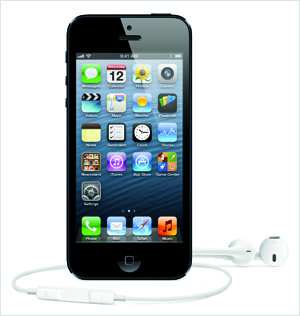Here are a few stories that caught my attention in the commerce space this week.
So that’s that: No NFC for the iPhone 5
 Leading up to yesterday’s Apple event, there was much rumor mongering over whether or not the iPhone 5 would include NFC technology. The rumors have now been resolved: Apple did not include NFC in the iPhone 5. All Things Digital’s Ina Fried talked with Apple’s Phil Schiller about the lacking technology:
Leading up to yesterday’s Apple event, there was much rumor mongering over whether or not the iPhone 5 would include NFC technology. The rumors have now been resolved: Apple did not include NFC in the iPhone 5. All Things Digital’s Ina Fried talked with Apple’s Phil Schiller about the lacking technology:
“Apple Senior VP Phil Schiller said that Passbook alone does what most customers want and works without existing merchant payment systems. It’s not clear that NFC is the solution to any current problem, Schiller said. ‘Passbook does the kinds of things customers need today’.”
Schiller’s sentiments echoed those made by Square COO Keith Rabois last year, that NFC is “a technology in search of a value proposition.” Cotton Delo at AdAge reported on Apple’s decision to forego NFC and side step the mobile wallet arena and noted that it’s not likely to have any ill effects on the mobile shopping ecosystem, as there is plenty of competition in the space to advance mobile wallet technology.
All the same, advancement in technology doesn’t necessarily translate into ubiquitous adoption, and the decision not to include the technology could have ramifications beyond mobile payments. Ryan Kim at GigaOm argues that Apple’s “snub” was a big detriment for NFC, that including it on “the most popular phone” would have educated consumers and brought a level of validation the technology hasn’t yet experienced. Kim also highlights the bigger issue:
“NFC is much more than just payments and can facilitate personal media and information sharing, building access, marketing and easy Bluetooth pairing. Google, BlackBerry, Nokia and Samsung have all shown different ways in which NFC can be used. But without many common applications that can work between those devices, there’s fewer chances for people to really adopt the technology. With a new iPhone likely to be a best seller, there would have been a lot of ways for people to get acquainted with NFC-actions. Now, the promise of NFC will still struggle to be fulfilled for at least another year.”
 X.commerce harnesses the technologies of eBay, PayPal and Magento to create the first end-to-end multi-channel commerce technology platform. Our vision is to enable merchants of every size, service providers and developers to thrive in a marketplace where in-store, online, mobile and social selling are all mission critical to business success. Learn more at x.com.
X.commerce harnesses the technologies of eBay, PayPal and Magento to create the first end-to-end multi-channel commerce technology platform. Our vision is to enable merchants of every size, service providers and developers to thrive in a marketplace where in-store, online, mobile and social selling are all mission critical to business success. Learn more at x.com.There may be light in the tunnel for NFC yet
NFC might have taken a hit this week on the smartphone front, but the technology may have found a problem to solve in an (arguably more) unlikely place: the desktop computer. Adrian Covert at Gizmodo reports that MasterCard and Intel announced a partnership at the Intel Developer Forum this week that will “give merchants and laptop makers the necessary technology they need to act as credit card terminals.”
What this means for online shoppers, Covert says, is no more entering credit card numbers or storing them online — “you just tap your card or phone to your computer and get on with your day.” What this means for NFC could be a helpful nudge toward becoming a mainstream technology. Covert writes, “… with more and more phones and PCs coming equipped with NFC, the technology will be there en masse (meaning merchants can spend time and money integrating the feature knowing more than 10 people will use it).”
The growing “fustercluck” of services could hold back mobile payments
Leena Rao at TechCrunch took a look this week at what she calls “fustercluck” in the mobile payments arena. Noting the pace at which companies are launching mobile-payment-related platforms, she asks “how many more ways do we need to pay for a physical or digital product via a mobile device?”
Rao lays out the ecosystem landscape, including the major players like Google, Isis and PayPal, but notes that companies like Groupon, LevelUp and Shopkick are dabbling in mobile payments in various ways, and even major retailers have jumped in. The field is going to need to thin out, she argues, before mobile payments can achieve any kind of ubiquity:
“I think it’s safe to assume that there will be more than one clear-cut winner in the mobile payments/digital wallet race, but we will see consolidation. From the user point of view, a consumer is going to get frustrated very quickly if he or she has to use 10 different apps to pay for items.”
The deciding factor in which companies and platforms will come out on top goes beyond scale and the number of customers a platform can secure, Rao says. “I believe that the company or startup that commands the best value for both consumers and merchants will become the clear-cut leader,” she writes. Rao’s piece is well worth the read.
Tip us off
News tips and suggestions are always welcome, so please send them along.
Commerce Weekly is produced as part of a partnership between O’Reilly and PayPal.
Related:
